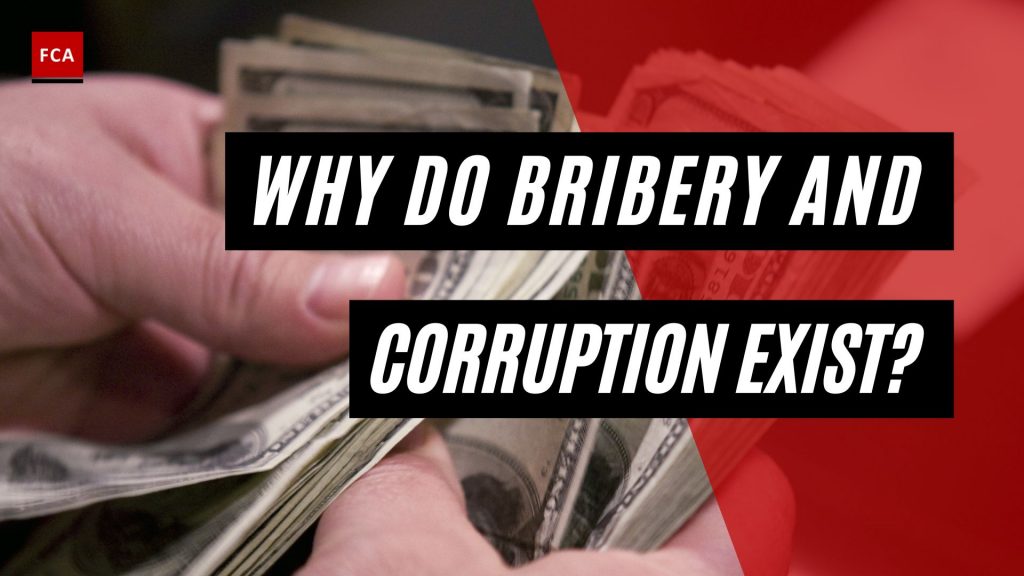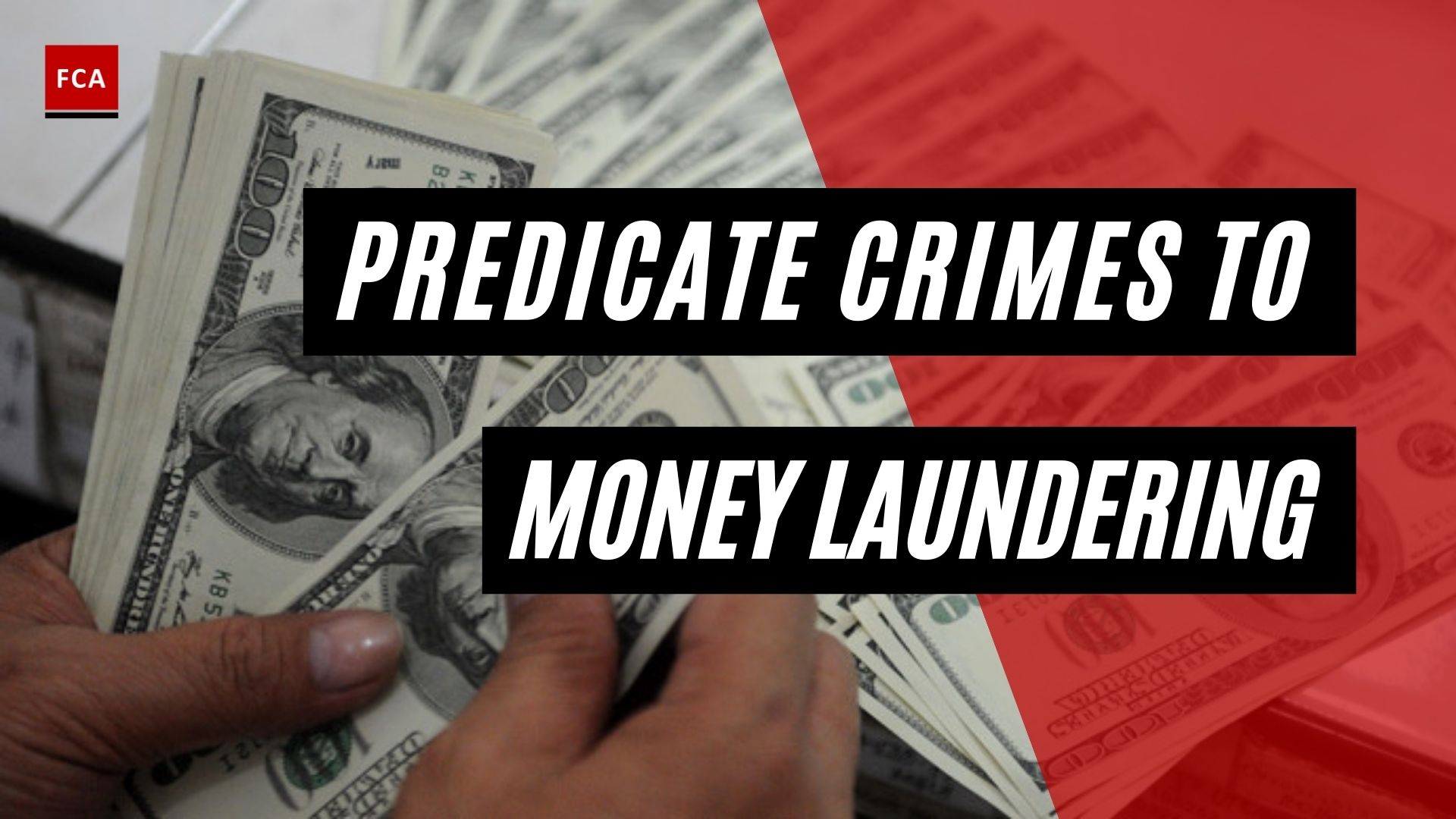Why do bribery and corruption exist? Bribery and corruption usually occurs when some people are willing to use illegal means to maximize their personal or corporate gain. However, for these people to become involved in corrupt activity, conditions must exist that do not prevent or discourage them from doing so. This section considers the motivation for corruption, and examines the factors which make it easier for corruption in the infrastructure sector to take place and which are, therefore, largely responsible for corruption occurring.

Why Do Bribery And Corruption Exist?
There is no single reason behind the occurrence of bribery and corruption. Whenever bribery and corruption-related incident occur, the need to look at the situation from the perspective of the person who committed the act of bribery or corruption, it is necessary to take into account the following factors:
- The motivation of persons who committed the bribery and corruption and the conditions under which they rationalized their behavior;
- Opportunities available to commit bribery and corruption;
- Technical and power ability of the person committed the bribery and corruption;
- The expected risk of discovery of the bribery and corruption activities, after they have been performed;
- Consequences of bribery and corruption such as penalties, punishments, etc.
Bribery and corruption may be caused due to the below-mentioned factors, and they may be present together in a single instance. This model tells us that bribery and corruption usually results from a combination of four factors:
- Aspect,
- Motivation,
- Cause, and
- Trinity.
Professionals or opportunists may perform bribery and corruption activities at the workplace to fulfill their financial needs and desires, or they may be provided with an opportunity to avail themselves and gain personal benefits. Some of the fraudsters rationalize the fraud activities through bribery and corruption.
Here are the bribery and corruption-related factors which are discussed in detail:

Aspect
The aspect may be the motivation based on either greed or the need of the person committing the bribery and corruption. Greed continues to be the main cause of fraud in many countries and jurisdictions. Many people are faced with or provided with the opportunity to commit bribery and corruption.
The fraudster’s personality, knowledge, and temperament enable them to confidently commit the frauds, and they are not frightened people. There may also be the possibility that good people may fall into the bad company of the criminals who make them commit bribery and corruption in the working places or the companies where these good people are employed.
For example, a bank employee may be used by the criminal to transfer the money from one location to another through opening an account with the bank without any due diligence of the criminal. The purpose may be the performance of bribery and corruption.
Motivation
Bribery and corruption usually occur in companies with a weak system of internal controls, and poor security measures are implemented. Fraudsters exploit the weak internal control system and commit the activities to gain benefits.
Establishing robust internal controls is the responsibility of the Board of Directors and Senior Management of the company. Without appropriate and robust processes and controls, the operations of the company or organizations may not be run, causing various losses to the company such as operational, reputational, and financial losses. The financial position of the company deteriorates without appropriate internal controls.
A weak internal controls system means weak governance structure and poor policies and processes. Due to the weak internal control system, the organization is exposed to various types of risks, such as:
- Financial risk,
- Reputational risk,
- Operational risk,
- Legal risk,
- Regulatory risk,
- Strategic risk, etc.
Cause And Trinity
Bribery and corruption may be caused due to a lack of knowledge and awareness about the applicable laws and regulations. Most people committing corruption and bribery are unaware of the potential consequences; therefore, they do not realize the impact that may have occurred on their professional image and reputation. Various people obey the laws and regulations of the country because they believe that compliance with laws and regulations is their main responsibility. These types of people are afraid of being exposed if they are found in any illegal activity or non-compliance with any law or regulation.
However, some people may be able to rationalize fraudulent acts and actions as:
- Necessary – especially when done for the business;
- Harmless – because the victim is large enough to absorb the impact;
- Justified – because ‘the victim deserved it’ or ‘because I was mistreated.
The consequences of bribery and corruption are the punishments as per the applicable regulatory framework and the organization’s compliance policies. The employees may be issued with show-cause notices from the human resource department, and they may also be terminated from employment due to the performance of the bribery and corruption activities. Some organizations keep zero tolerance for bribery and corruption; therefore, the employees and related persons are terminated immediately.
Final Thoughts
Corruption is a societal constant that occurs in all civilizations; however, it has only been in the last 20 years that this phenomenon has been seriously investigated. It takes many different forms and has many different effects on the economy and society as a whole. The political and economic environment, professional ethics and morality, and, of course, habits, customs, tradition, and demography are among the most common causes of corruption.
Its effects on the economy (and also on society as a whole) have been thoroughly studied, but not completely. Corruption stifles economic growth by interfering with business operations, employment, and investment. It also has a negative impact on tax revenue and the effectiveness of various financial assistance programs.








